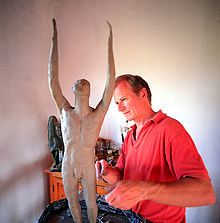Sakıp Sabancı was a Turkish business tycoon and philanthropist.

Sir John Robert Steell was a Scottish sculptor. He modelled many of the leading figures of Scottish history and culture, and is best known for a number of sculptures displayed in Edinburgh, including the statue of Sir Walter Scott at the base of the Scott Monument.

František Bělský was a Czech sculptor.
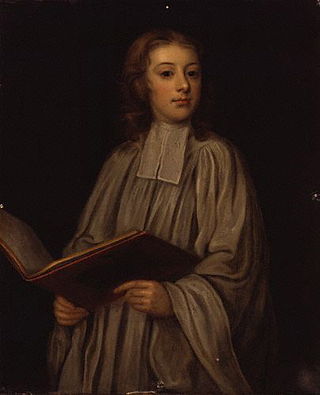
William Croft was an English composer and organist.

Sir William Reid Dick, was a Scottish sculptor known for his innovative stylisation of form in his monument sculptures and simplicity in his portraits. He became an Associate of the Royal Academy in 1921, and a Royal Academician in 1928. Dick served as president of the Royal Society of British Sculptors from 1933 to 1938. He was knighted by King George V in 1935. He was Sculptor in Ordinary for Scotland to King George VI from 1938 to 1952 then held the post under Queen Elizabeth until his death in 1961.
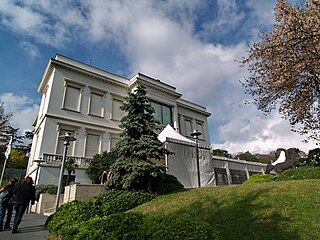
The Sabancı University Sakıp Sabancı Museum is a private fine arts museum in Istanbul, Turkey, dedicated to calligraphic art, religious and state documents, as well as paintings of the Ottoman era. The museum was founded by Sakıp Sabancı, and was opened in June 2002. Aside from permanent exhibitions, the museum also hosts national and foreign temporary exhibitions and, hosts cultural events on the weekends.

Güler Sabancı is a Turkish businesswoman, a third-generation female member of the Sabancı family, and the chairperson of the family-controlled Sabancı Holding, the second-largest industrial and financial conglomerate in Turkey. As of 2020, she is listed as the 76th most powerful woman in the world by Forbes, which first recognized her in 1999.
Christian Corbet is a Canadian artist. He is a Sculptor in Residence for the Royal Canadian Navy.
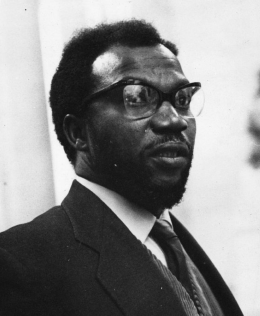
Odinigwe Benedict Chukwukadibia Enwonwu MBE, better known as Ben Enwonwu, was a Nigerian painter and sculptor. Arguably the most influential African artist of the 20th century, his pioneering career opened the way for the postcolonial proliferation and increased visibility of modern African art. He was one of the first African artists to win critical acclaim, having exhibited in august exhibition spaces in Europe and the United States and listed in international directories of contemporary art. Since 1950, Enwonwu was celebrated as "Africa's Greatest Artist" by the international media and his fame was used to enlist support for Black Nationalists movement all over the world. The Enwonwu crater on the planet Mercury is named in his honour.

Oscar Nemon was a Croatian sculptor who was born in Osijek, Croatia, but eventually settled in England. He is best known for his series of more than a dozen public statues of Sir Winston Churchill.
Edward Bainbridge Copnall was a British sculptor and painter. Best known for his architectural and decorative sculptures featuring allegorical and religious subjects. He was the President of the Royal Society of Sculptors from 1961 to 1966.
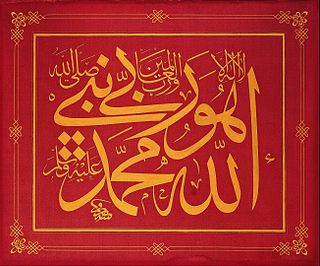
Mustafa Râkim (1757–1826), was an Ottoman calligrapher. He extended and reformed Hâfiz Osman's style, placing greater emphasis on technical perfection, which broadened the calligraphic art to encompass the Sülüs script as well as the Nesih script.
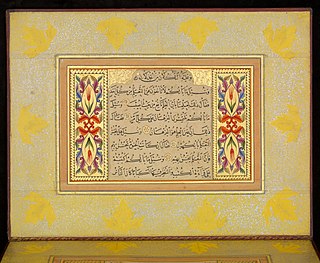
Derviş Ali was a 17th-century Ottoman calligrapher.
Kazasker Mustafa Izzet Efendi, was an Ottoman composer, neyzen, poet and statesman best known for his calligraphy.
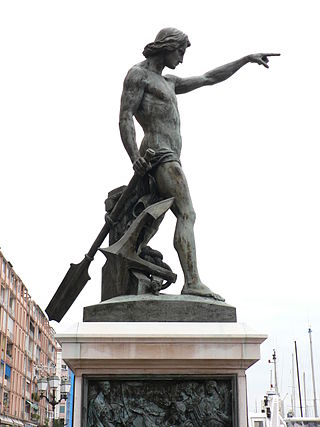
Louis-Joseph Daumas (1801–1887) was a French sculptor and medallist.
Michael Gaspard Rizzello was a sculptor and designer.

Douglas Jennings MRSS is an English sculptor and a Member of the Royal Society of Sculptors.

A bronze sculpture of Elizabeth II by the Nigerian sculptor Ben Enwonwu was commissioned by the Queen on her visit to Nigeria in 1956, and she sat for Enwonwu in London in 1957. It was completed by Enwonwu in London and exhibited by him at the Royal Society of British Artists exhibition in London in November 1957. The over life-sized statue depicts the Queen seated with her hands in her lap.
Anyanwu is a bronze sculpture created by the Nigerian artist Ben Enwonwu between 1954 and 1955. It is a representation of the Igbo mythological figure and earth goddess Ani. It was created to mark the opening of the Nigerian National Museum in Lagos in 1956 and is still on display outside the museum. A life size version of the piece was presented to the United Nations by Nigeria in 1966 and is displayed in the Headquarters of the United Nations in New York City. Several subsequent smaller editions of the piece have since been created.

The art of Turkish calligraphy dates back to the seventh century. The Ottoman Turks migrated from Central Asia to establish an empire in Anatolia by 1299, and conquered Constantinople in 1453. The Ottoman Empire became a major European power. After the fall of the Mamluk Sultanate (1517), the Ottomans began to exert great influence over Islamic art and placed great emphasis on calligraphy. They collaborated with Egyptian and Persian calligraphers, adopting the naskh and thuluth scripts.
